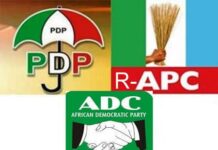The ‘Samoa Agreement’ And The Ministry of Foreign Affairs Approach: A critical reflection on Nigeria’s delayed engagement with the EU-ACP EPA, by David Imonitie
The “Samoa Agreement” is the name for the EU-ACP Economic Partnership Agreement (EPA): the legal framework governing the relations between 15 states in the EU and about 79 states in Africa, the Caribbean and the Pacific (ACP). Generally, EPAs between the EU and the ACP countries aim to foster trade and development cooperation and there is potential mutual benefit for both parties. It is renegotiated every 20 years and revised periodically within this period. The EPAs dates back to the Yaoundé Agreements of 1959 and the last one, the Cotonou Agreement, was negotiated in 2000.
In a press release with reference number MFA/PR/2023/28, dated Thursday, 16, November 2023, the Federal Ministry of Foreign Affairs brought the attention of the general Nigerian public to the fact that the Federal Government of Nigeria was not represented at the Signing Ceremony, which took place in Samoa on Wednesday, 15th November, 2023 and hence has not signed the Agreement. It concluded by saying that the “relevant Nigerian stakeholders are currently studying the Instrument with a view to ensuring that its provisions do not contravene Nigeria’s domestic legislation.”
How can Nigeria still be studying the entire treaty in November 2023, when the last treaty, the Cotonou Agreement, expired since 2020? Or is three years plus not ample time to conclude a pre-treaty signing impact assessment of the innovations of the proposed treaty and provide its recommendations? Our concern is largely centred on LGBTQ+, which is just a component of Human Rights, one of the six key priority areas. What about the other priority areas? Do we throw away the baby with the bath water?
The potential benefit for Nigeria is demonstrable. Under the treaty, Nigeria will have improved access to EU markets; it will – ceteris paribus – attract foreign direct investment (FDI) from EU countries; get EU-funded development assistance programmes that support capacity building, infrastructure development, institutional reforms, and investment in sectors crucial for economic growth etc.
I don’t see anything wrong with signing the Samoa Agreement. Signing a treaty does not impose legal obligations on the state. It merely signifies an initial endorsement or support for the treaty’s content and signifies the state’s intention to consider the treaty domestically; and after careful consideration, it may or may not ratify it. Once ratified, the state becomes a party to the treaty and is bound by its terms under international law.
As a matter of fact, you can sign a treaty with reservations, which operates to exclude or modify the legal effect of that treaty provision in their application to Nigeria. The rule is that reservations, if accepted by the other parties to the treaty, allow the reserving state to be a party to the treaty while exempting it from the offending provision or modifying its obligations under those provisions. Besides, Nigeria is a dualist state that requires transformation of treaties under S.12 of the 1999 Nigerian Constitution before a treaty can have effect in our courts.
In conclusion, the delayed engagement in signing the ‘Samoa Agreement’ despite the expiration of the Cotonou Agreement reveals critical concerns. The Ministry’s prolonged evaluation, emphasising LGBTQ+ issues while neglecting broader priority areas, questions the timeliness and inclusivity of the assessment process. The potential benefits for Nigeria, including enhanced market access and developmental aid, warrant prudent consideration amidst the Ministry’s cautious approach. Signing, not tantamount to immediate obligations, allows for deliberate domestic scrutiny and, if necessary, reservation options. However, the extended evaluation duration seemingly contradicts the urgency of addressing crucial trade and developmental opportunities awaiting Nigeria within the EU-ACP partnership.
What is the way forward? The relevant agencies should submit a white paper on the cost-benefit analysis of the treaty to the Ministry of Foreign Affairs. For instance, the Nigerian Export Promotion Council (NEPC) should submit a white paper on how we can benefit from the free trade agreements that allow us to export made in Nigeria products to the EU duty-free and quota-free. Is there a white paper on the gains of the Cotonou Agreement? Going forward, there should be a unit in the Ministry of Foreign Affairs that is dedicated to treaty monitoring and evaluation. We should be more concerned about gains from the treaty through deft diplomatic engagements.
David Imonitie Ogbeidi, FMNIIA, is a public affairs commentator; and particularly, an International Relations analyst. He is currently writing from Port-Harcourt.
Follow the Neptune Prime channel on WhatsApp:
Do you have breaking news, interview request, opinion, suggestion, or want your event covered? Email us at neptuneprime2233@gmail.com





